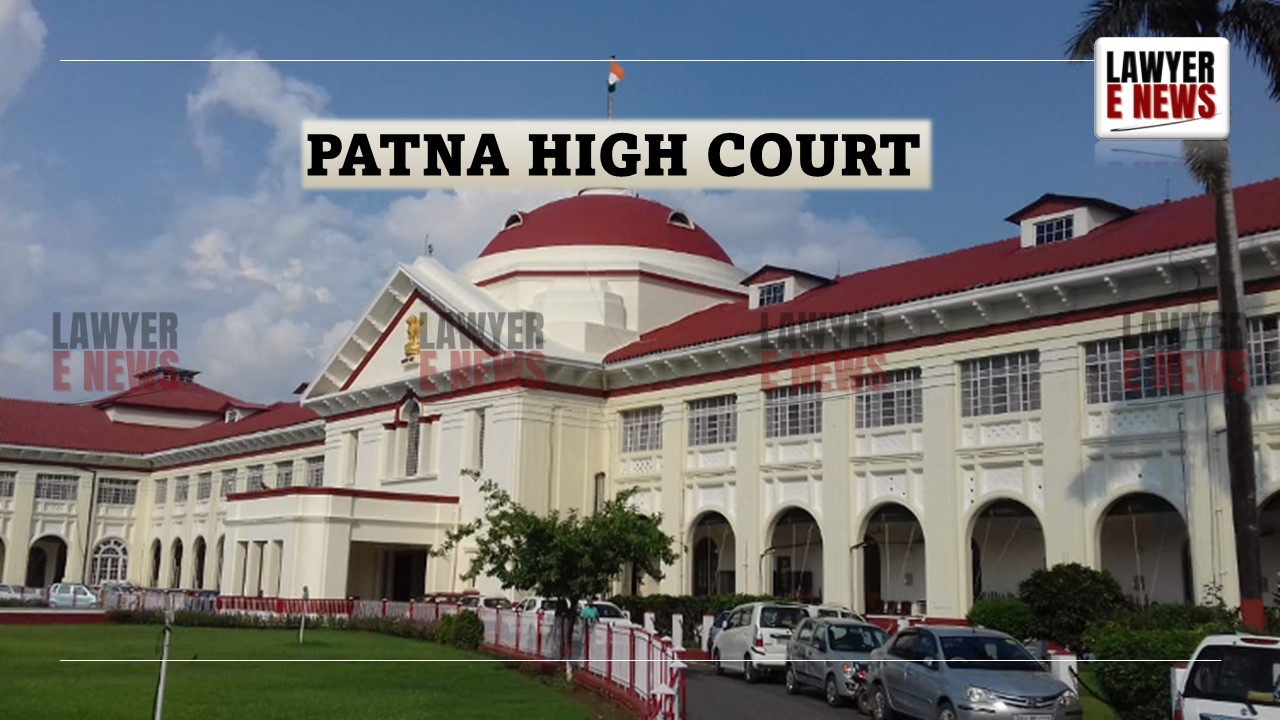-
by Admin
15 February 2026 5:35 AM



“Judicial orders of the civil courts are not amenable to writ jurisdiction under Article 226. Jurisdiction under Article 227 is distinct and constitutional, providing oversight over subordinate courts,” observed Justice Mohit Kumar Shah.
Patna High Court, in Rameshwar Singh & Anr. v. Jagdish Prasad Singh & Ors., emphasized that writ jurisdiction under Article 226 of the Constitution cannot be invoked to challenge judicial orders of civil courts. The Court allowed the petitioners four weeks to convert their writ petition into a Civil Miscellaneous Petition under Article 227 of the Constitution, aligning with established judicial precedents and amendments in the High Court's procedural rules.
The petitioners challenged an order dated October 28, 2013, passed by the Munsif Court in Purnea in Title Suit No. 104 of 2005. The petition sought to overturn the lower court's rejection of an amendment to the suit, which the petitioners claimed was essential for the just adjudication of the matter. They argued that the lower court's order was perverse and lacked cogent reasoning, causing gross prejudice.
Citing procedural amendments and established jurisprudence, the respondents contended that the writ petition was not maintainable under Article 226. They highlighted the Supreme Court's rulings in Radhey Shyam & Anr. v. Chhabi Nath & Ors. (2015) and Surya Dev Rai v. Ram Chander Rai (2003), which delineated the scope of Articles 226 and 227.
Justice Shah meticulously analyzed the scope of writ jurisdiction under Article 226 and the supervisory jurisdiction under Article 227, noting:
“Jurisdiction under Article 227 is distinct from jurisdiction under Article 226. While Article 226 addresses the violation of fundamental rights or statutory duties, Article 227 provides a constitutional mechanism for oversight over subordinate courts and tribunals.”
The Court clarified that Article 226 does not encompass judicial orders of civil courts, which are subject to appellate or revisional remedies under the procedural law or supervisory jurisdiction under Article 227.
Referring to Radhey Shyam & Anr. v. Chhabi Nath & Ors., the Court highlighted:
“The decision in Surya Dev Rai that blurred the distinction between Articles 226 and 227 has been expressly overruled. The Supreme Court has affirmed that writs under Article 226 are inapplicable to judicial orders passed by civil courts.”
The judgment also underscored the constitutional significance of Article 227, which empowers High Courts to correct jurisdictional errors and ensure adherence to justice principles by subordinate courts.
Justice Shah referred to Rule 6 of Chapter IIIA of the Patna High Court Rules, which categorizes petitions under Article 227 challenging civil court orders as Civil Miscellaneous Jurisdiction cases. He remarked:
“The procedural amendments align with the jurisprudence laid down by the Supreme Court, ensuring clarity in the filing and adjudication of matters involving judicial orders of civil courts.”
The Court expressed concern over the growing trend of filing writ petitions under Article 226 for purely private disputes, such as property and partition matters. Quoting from Shalini Shyam Shetty v. Rajendra Shankar Patil (2010), Justice Shah observed:
“In a regime governed by the rule of law, High Courts must exercise restraint and adhere to time-honored principles when invoking extraordinary jurisdiction. Frequent interference in civil and criminal proceedings undermines the administration of justice.”
Granting the petitioners four weeks to convert their writ petition into a Civil Miscellaneous Petition, the Court directed:
“The registry shall facilitate the conversion of the writ petition at the earliest and ensure its priority listing before the concerned Bench, given that the case has been pending for over a decade.”
The judgment reaffirmed that judicial orders of civil courts are not amenable to writ jurisdiction and can only be challenged through statutory remedies or under Article 227.
This judgment reinforces the principle that High Courts must exercise their constitutional powers judiciously, respecting the distinction between Articles 226 and 227. By directing procedural compliance, the Patna High Court has underscored the importance of adhering to established legal frameworks in the pursuit of justice.
Date of Decision: November 22, 2024
